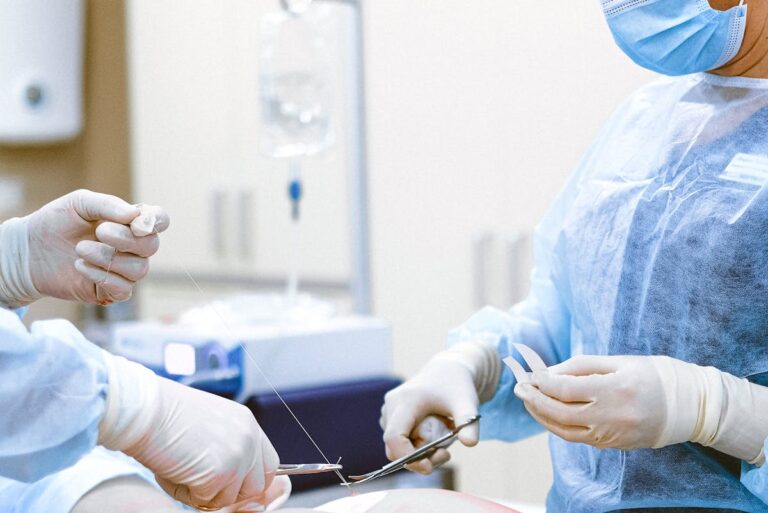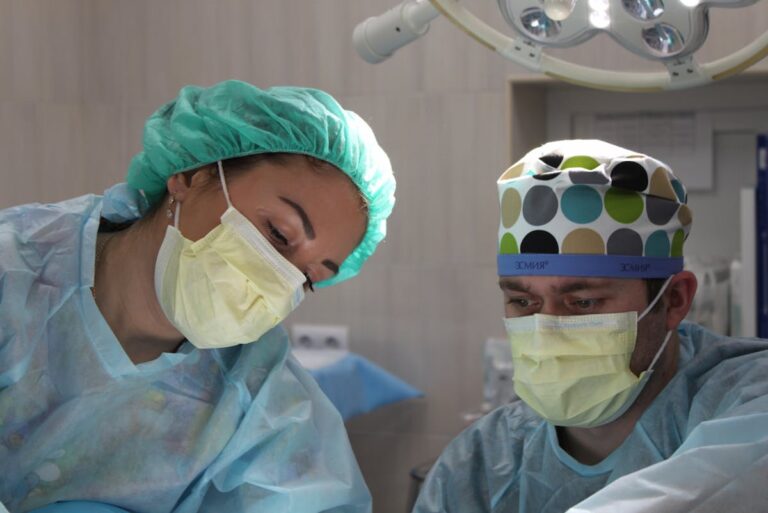As the practice of minimally invasive spine surgery becomes increasingly prevalent, the spotlight inevitably falls upon the criticality of post-surgery care in defining the surgery’s success. While this modern surgical approach boasts benefits such as reduced hospital stays and faster recovery times, the importance of following post-op guidelines is crucial. From the immediate post-operative period to long-term lifestyle considerations, each aspect of care plays an essential role in a patient’s journey back to health. How, then, can patients best navigate this path to guarantee an excellent recovery and return to normalcy? Let’s explore. Minimally invasive spine surgery, a revolutionary advancement in medical science, utilizes state-of-the-art technology to perform delicate spinal procedures with precision, minimal tissue damage, and markedly reduced recovery time. This advanced surgical approach offers an edge over traditional open surgery, primarily with regards to reduced spine surgery risks.However, like any other surgical procedures, minimally invasive spine surgery is not entirely devoid of risks. Potential complications may include infection, bleeding, nerve damage, or issues related to anesthesia. The risk of such complications is greatly lessened due to the innovative surgical techniques, but they still exist. Hence, it is important for patients to engage in informed discussions with their healthcare providers regarding the risks and benefits of this procedure.In certain cases, alternative treatment options may be considered before resorting to surgery. These could include physical therapy, pain management through medication, chiropractic treatment, or lifestyle modifications. It is essential to remember that the choice of treatment should be individualized, taking into account the patient’s specific condition, overall health, and lifestyle. To sum up, minimally invasive spine surgery is a significant development in medical science, providing an effective treatment option with reduced risks, but it should be considered after evaluating all other alternatives. The critical importance of post-operative care following minimally invasive spine surgery cannot be overstated. This care phase is instrumental in ensuring a successful recovery, optimizing patient health outcomes, and minimizing potential complications. In the subsequent discussion, we will explore the integral elements of post-op care, their specific roles, and the ways they contribute to an effective healing process. Understanding the significance of post-operative care following minimally invasive spine surgery is paramount to ensuring a successful recovery and minimizing potential complications. This is where patient education plays an essential role. Educating patients about their post-operative care regimen allows them to be proactive in their recovery and prevents misunderstandings that could lead to potential surgical risks.The importance of post-operative care extends beyond immediate recovery. It is a pivotal phase that can determine the long-term success of the surgery. Adherence to post-op guidelines can prevent complications such as infection, blood clots, and nerve damage. It can also play a significant role in mitigating pain and improving mobility, thereby enhancing the overall quality of life for the patient.In essence, post-op care is an integral part of the surgical process, and its significance cannot be overstated. It is a collaborative effort involving the surgical team, the patient, and often, their family members. By understanding and acknowledging this importance, patients are better equipped to participate actively in their recovery, which can ultimately lead to a better surgical outcome and improved long-term health. Often, a successful recovery from minimally invasive spine surgery hinges on the adherence to a thorough post-operative care plan. These detailed programs are designed to foster patient empowerment, allowing individuals to play an active role in their own recovery process. This pivotal component of post-op care encourages patients to take personal responsibility for their health outcomes, greatly influencing the success rate of the procedure.Another essential aspect of ensuring successful recovery is the integration of robust support systems. These systems may include physical therapists, home health aides, or even family members who are trained to assist the patient in their recovery. They play an integral role in providing the necessary physical and emotional support, as well as ensuring consistency in care.The combination of a strong post-op care plan, patient empowerment, and effective support systems can markedly increase the likelihood of successful recovery. It is important to remember that recovery is not just the absence of symptoms, but the restoration of normal function and quality of life. Therefore, adherence to post-operative care plans and the utilization of support systems are key to achieving this goal. Getting through the immediate aftermath of minimally invasive spine surgery requires following certain guidelines crafted to guarantee patient safety and swift recovery. Paramount among these are considerations regarding post-surgery mobility and surgical wound care.Post-surgery mobility is often limited in the initial days following the procedure. Patients are advised to gradually reintroduce movement into their routine. Light activities like walking short distances can aid in muscle strength retention and circulation improvement, reducing the risk of blood clots. However, it is essential to balance activity with rest, as overexertion can lead to complications.Equally important is surgical wound care. Maintaining the cleanliness and integrity of the surgical site can prevent infections and promote healing. Patients should clean the wound as per the surgeon’s instructions, typically by using a mild soap and clean water, then pat it dry gently. Dressings should be changed regularly and any signs of infection such as redness, swelling, or excessive pain should be reported immediately to the healthcare provider.These immediate post-surgery guidelines, when followed diligently, can pave the way for a successful recovery and minimize potential complications. Remember, every patient’s journey to recovery is unique, and these guidelines should be adapted to suit individual needs and circumstances. How can patients effectively manage post-operative pain following minimally invasive spine surgery? The answer lies in a combination of conventional and alternative pain management strategies.Firstly, patients must uphold the prescribed pain medication regimen. This often includes opioids for immediate pain relief. However, prolonged use of such drugs can lead to dependency and other side effects. Hence, the use of alternative painkillers is recommended. These may comprise of non-steroidal anti-inflammatory drugs (NSAIDs), acetaminophen, or other non-opioid analgesics. They are typically less potent but also have fewer side effects, making them suitable for managing chronic post-surgical pain.In addition to medication, non-pharmacological methods like mindful breathing can be beneficial. This technique involves slow, deep breathing, focusing the mind on the breath to promote relaxation and pain reduction. The purpose is to divert attention away from the pain and towards the breath, reducing the perception of discomfort.While these strategies can help manage pain, they should be applied responsibly and under a healthcare professional’s supervision. Remember, effective pain management is crucial to guarantee a successful recovery after minimally invasive spine surgery. Physical therapy, an essential component of post-surgery care, plays a pivotal role in fostering recovery and restoring functionality after minimally invasive spine surgery. The implementation of tailored post-surgery exercise regimes, under the guidance of a certified physical therapist, can expedite the healing process and improve the patient’s quality of life. Continuous monitoring of progress and timely adjustments to the therapy plan are essential to guarantee favorable recovery outcomes. Certainly, an integral component of post-surgery recovery from minimally invasive spine surgery is the strategic implementation of physical therapy, aimed at restoring strength, flexibility, and overall functionality. The role of physical therapy is essential in the rehabilitation process, helping to expedite the patient’s return to their normal lifestyle and activities.The therapy equipment used typically includes resistance bands, physio balls, and specialized machines, all designed to facilitate targeted exercises that strengthen the back and core muscles. By leveraging such equipment, physical therapists can design individualized treatment plans that progressively challenge the patient’s physical capabilities, thereby promoting healing and recovery.Rehabilitation duration is another critical aspect of physical therapy. While the timeframe can vary depending on the patient’s specific case and rate of healing, a consistent and committed approach to the therapy sessions is important. It’s important for patients to understand that recovery won’t happen overnight. Instead, it is a gradual process that requires patience, perseverance, and dedication to the therapy regime. In the context of post-surgical recovery, the significance of a tailored exercise regime under the guidance of a skilled physical therapist cannot be emphasized enough. This professional can design a patient-specific fitness plan that aids in restoring strength, flexibility and overall mobility, while simultaneously ensuring the safety and effectiveness of the plan.Exercise precautions should be diligently followed to avoid unnecessary strain or potential re-injury. These precautions are typically based on the type and location of the surgery, the patient’s physical condition, and any underlying health issues. Therefore, the guidance of a physical therapist is essential in understanding and adhering to these limitations.The use of mobility aids, such as canes, walkers, or wheelchairs, may be necessary in the initial stages of recovery. These aids not only offer physical support but also enhance confidence in movement, preventing falls and subsequent complications. The physical therapist can guide the patient in the correct usage of these aids, gradually progressing towards independent mobility. Keeping tabs on a patient’s progress and making necessary adjustments to their recovery regimen is a pivotal role played by a physical therapist post minimally invasive spine surgery. A physical therapist closely monitors the patient’s healing process, tracking improvements in mobility, strength, and overall functionality. They also carefully adjust the rehabilitation program as per the patient’s progress, ensuring a steady, safe, and efficient recovery.The importance of a support network cannot be overstated in this scenario. The journey to recovery is seldom a solitary one. A robust support network, comprising family members, friends, and healthcare professionals, can greatly influence the patient’s morale, adherence to the therapy schedule, and overall progress.Alongside physical therapy, medication adherence is another critical aspect of post-surgery care. Regular intake of prescribed medicines helps control pain, reduce inflammation, and prevent potential complications. The physical therapist, in collaboration with other healthcare providers, can help enforce medication adherence, educating the patient about its importance, and addressing any concerns they might have. A balanced, nutrient-rich diet plays a pivotal role in speeding up recovery following minimally invasive spine surgery. Consuming balanced meals filled with essential nutrients can greatly enhance the body’s healing process, reducing inflammation, and promoting tissue regeneration.The intake of nutritional supplements can be beneficial, particularly if the dietary intake is not sufficient. These supplements can fill nutritional gaps and aid in the recovery process. Proteins, for instance, are essential as they help in repairing body tissue and maintaining the health of the immune system. Vitamins A and C, zinc, and other antioxidants can promote wound healing and boost the immune system.It’s also important to maintain proper hydration. Water aids in nutrient transport within the body and flushes out toxins, facilitating recovery. Additionally, patients should limit their intake of processed foods and sugars, which can increase inflammation, and instead focus on whole foods like fruits, vegetables, lean proteins, and whole grains.Ultimately, a patient’s diet post-surgery should be a priority, closely monitored and adjusted as needed. It’s not just about eating; it’s about eating right. A healthy diet can significantly impact the speed and quality of recovery, ensuring a successful return to everyday life. The role of adequate sleep and well-regulated rest patterns is indispensable in the recovery process following minimally invasive spine surgery. A focus on obtaining proper sleep not only facilitates a faster healing process, but also greatly reduces the likelihood of complications. In the following discussion, we will outline the importance of sleep and provide guidance on establishing healthy rest patterns post-surgery. Ensuring adequate and quality sleep after minimally invasive spine surgery plays an essential role in the healing and recovery process. The body uses sleep to restore and repair different functions, and this process becomes even more critical when the body is healing post-surgery.Proper sleep hygiene, encompassing a variety of practices that are necessary to have normal, quality nighttime sleep and full daytime alertness, is vital in the post-operative period. This includes maintaining a consistent sleep schedule, creating a restful environment, and avoiding habits that hinder sleep, such as excessive caffeine or screen time before bed.Circadian rhythms, the natural, internal processes that regulate the sleep-wake cycle, also play a significant role in healing. Disruptions to these rhythms, often caused by irregular sleep patterns, can negatively affect post-operative recovery. Ensuring these rhythms remain stable by sticking to a regular sleep schedule is of utmost importance. Emphasizing the importance of sleep, it is crucial to establish healthy rest patterns following minimally invasive spine surgery to promote peak healing and recovery. Your body requires periods of rest to repair and regenerate tissues affected during surgery.A key factor in achieving this is sleep environment optimization. This involves creating a bedroom environment conducive to restful, uninterrupted sleep. It includes maintaining a comfortable temperature, reducing noise and light levels, and investing in a high-quality, supportive mattress and pillows.Additionally, it is vital to develop a consistent sleep schedule, going to bed and waking up at the same time each day. This helps regulate your body’s internal clock, or circadian rhythm, promoting better sleep in the long run.Furthermore, integrating stress management techniques into your daily routine can greatly improve your sleep quality. Proven methods such as deep breathing, progressive muscle relaxation, yoga, and mindfulness meditation can alleviate stress and anxiety, promoting relaxation and ultimately, better sleep. Adequate hydration plays an essential role in the healing process post-minimally invasive spine surgery, fostering ideal recovery and overall health. The advantages of hydration are vast, extending beyond general wellness to greatly affect recovery post-surgery. Proper hydration benefits the body by promoting nutrient absorption, maintaining ideal body temperature, and ensuring efficient metabolism.Hydration also aids in the regeneration and healing of tissues impacted during surgery. It provides the necessary environment for the body’s cells to reproduce and function effectively, facilitating faster and more successful recovery. Dehydration, on the other hand, may lead to complications such as constipation and urinary tract infections, conditions that can hinder the healing process.Hydration timing is equally important. It is recommended that patients begin hydrating well before the surgery and continue to do so post-operation. Consuming an adequate amount of fluids, primarily water, throughout the day is ideal. However, it is equally important to avoid excessive fluid intake as it may lead to electrolyte imbalances. Patients should aim to maintain a balance, guided by medical advice, to ensure ideal hydration levels and therefore, a more efficient healing process. In the aftermath of minimally invasive spine surgery, meticulous attention to incision care and monitoring is crucial for preventing complications and promoting the best possible healing. The first line of defense in wound infection prevention is maintaining cleanliness. Patients should be instructed to keep the incision site clean and dry, limiting exposure to potential contaminants.Antibiotic usage guidance is another paramount aspect of incision care. Surgeons typically prescribe antibiotics to minimize the risk of postoperative infections. Patients must understand the importance of adhering to the prescribed dosage and duration to prevent antibiotic resistance and enhance healing.Moreover, monitoring for signs of infection, such as redness, swelling, or increased pain around the incision site, is essential. Any unusual discharge or persistent fever should also be immediately reported to healthcare professionals.Lastly, a well-balanced diet rich in proteins and vitamins can aid in the healing process by promoting cell growth and repair. Scheduled follow-up visits play an indispensable role in the postoperative care regime, ensuring continued assessment of the patient’s recovery progress and timely detection of any potential complications after minimally invasive spine surgery in Penn. These appointments, typically made within weeks after the surgery, allow the medical team to evaluate the healing process, review the effectiveness of the pain management plan, and make necessary adjustments to the rehabilitation program.The crux of these visits lies in open and effective doctor’s communication. A clear exchange of information regarding any symptoms, discomfort, or changes since the surgery is crucial. This two-way communication facilitates the modification of care plans, immediate response to complications, and improved patient outcomes.The patient’s responsibilities during these visits extend beyond merely showing up. Patients play an active role in their recovery by observing changes in their bodies, adhering to their prescribed medications and physical therapy regimens, and reporting any deviations or concerns. Regular follow-up visits, thus, serve as a platform for patients to actively participate in their care, fostering a sense of control and encouraging compliance to therapies, thereby ensuring a successful and efficient recovery from minimally invasive spine surgery. While the physical aspects of recovery are indeed important, the emotional well-being of a patient following minimally invasive spine surgery also plays a noteworthy role in the healing process. Emotions can greatly influence the perception of pain, and negative feelings may slow the healing process. As a result, emotional resilience techniques are crucial to guarantee a successful recovery.One such technique is mindfulness, which involves focusing on the present moment without judgment. This can help manage anxiety and improve mood. Cognitive-behavioral therapy (CBT) is another recommended technique. CBT can help patients understand and change thought patterns that lead to harmful behaviors or distress, thus enhancing their emotional resilience.Stress reduction strategies are also pivotal to emotional well-being. Regular exercise, balanced nutrition, and adequate sleep can contribute to stress reduction. Additionally, relaxation exercises like deep breathing, meditation, and yoga can help manage stress levels effectively. Implementing long-term lifestyle modifications after minimally invasive spine surgery often serves as a pivotal step towards ensuring a sustained and successful recovery. These adjustments are not just physical, but also involve a significant mental component. Cultivating mental resilience is essential, as it enables patients to cope with pain, persevere through challenging physical therapy sessions, and stay determined in their recovery journey. It involves maintaining a positive outlook, focusing on incremental progress, and not getting disheartened by temporary setbacks.Smoking cessation is another critical lifestyle modification post-surgery. Smoking has been proven to impede the healing process, leading to longer recovery times, increased risk of infection, and reduced effectiveness of the surgery. It also heightens the risk of future spinal problems. It is essential that patients quit smoking, both for their recovery and long-term health.Furthermore, maintaining a healthy weight through balanced nutrition and regular physical activity can significantly aid recovery and prevent further spinal issues. Regular health check-ups and following the surgeon’s advice are also crucial. Loose, soft clothing is recommended after minimally invasive spine surgery. Garments that don’t restrict movement can aid in sleep patterns and post-surgery nutrition, as comfort is key in the healing and recovery process. Smoking and alcohol consumption can impair recovery post-surgery. Nicotine withdrawal effects can include increased pain perception, while alcohol withdrawal management may necessitate medication, which can interfere with post-surgical healing and rehabilitation processes. Travel post-surgery is generally permissible after a few weeks; however, this depends on individual recovery progress, medication management, and adherence to post-surgery exercises. Always consult your surgeon for personalized advice. Engaging in stress-reducing activities such as meditation can greatly aid recovery. The benefits of meditation include reduced anxiety and improved concentration. Art therapy is another recommended activity which fosters creativity and emotional expression. Post-surgery, bathroom safety is pivotal. Utilize mobility assistance devices to prevent falls. Always guarantee you have stable support before moving. Avoid bending or twisting your spine, and if possible, ask for assistance when necessary.Understanding Minimally Invasive Spine Surgery
Importance of Post-Op Care
Post-Op Care Significance
Ensuring Successful Recovery
Immediate Post-Surgery Guidelines
Pain Management Strategies
Physical Therapy Importance
Role of Physical Therapy
Post-Surgery Exercise Regimes
Monitoring Progress and Adjustments
Healthy Diet for Recovery
Sleep and Rest Patterns
Importance of Proper Sleep
Establishing Healthy Rest Patterns
Role of Hydration in Healing
Incision Care and Monitoring
Regular Follow-up Visits
Emotional Well-being and Recovery
Long-term Lifestyle Modifications
Frequently Asked QuestionsWhat Types of Clothing Are Most Comfortable After Minimally Invasive Spine Surgery?
How Does Smoking or Alcohol Consumption Affect My Recovery Process?
Can I Travel Long Distances Post-Surgery, and if So, After How Long?
What Are Some Recommended Activities to Help Manage Stress During Recovery?
Are There Any Specific Precautions I Should Take While Using the Restroom Post-Surgery?



